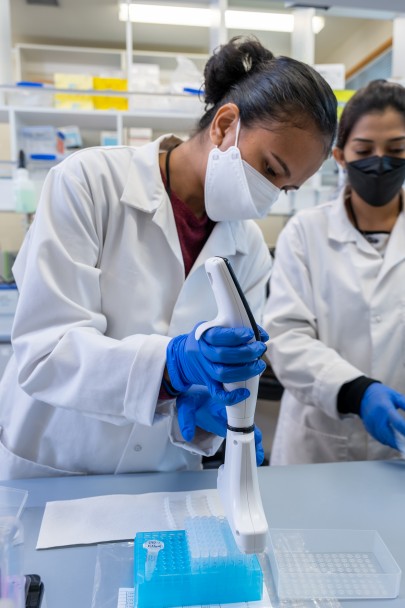Pacific Seeds for Life
In this section
Led by Manaaki Whenua, the five year Pacific Seeds for Life programme aims to empower Pacific islands to develop resilient food production systems, to ultimately, achieve food security.
The programme is about creating robust and resilient seed systems supported by research to give farmers better access to skills, resources and knowledge
The Centre for Pacific Crops and Trees (CePaCT) in Suva, Fiji is a gene bank, safeguarding many varieties of Pacific crops, and making a diverse portfolio of high-quality plant genetic resources available at all times for farmers and growers
CePaCT holds the largest collection of taro varieties in the world. MWLR facilitates the efficient screening of virus diseases in these different taro varieties and helps to keep the collection disease free.
Healthy taro seedlings are distributed to farmers around the Pacific region, contributing significantly to the food security in the area.
Tonga and Vanuatu are the first countries to roll out the PS4L initiative.
What’s happening in Vanuatu?
A team from Manaaki Whneua has been working with local teams in Efate, Espiritu Santo and Malekula in Vanuatu to map out a 12 month plan.
Local agricultural champion and agronomist Pierre Lecouvre has been working with key personnel from the Department of Agriculture and Rural Development (DARD) to train farmers in remote locations in seed saving, new plant varieties, organic production, subsistence agriculture and agribusiness opportunities.
New seed storage facilities ensure plant materials can be readily conserved and shared in times of recovery from adverse weather events.
Regional direction and support is from the Land Resources Division, including Pacific Centre for Crops and Trees, Pacific Community (SPC).
What’s happening in Fiji?

Sera Dau from CePaCT learning about the plant virus screening process using taro culture samples.
Molecular technicians from CePaCT in Suva, Fiji, have been being trained in the Gamete, Ecotoxicology and Molecular (GEM) lab at the Manaaki Whenua Lincoln site to extend the molecular analysis skills of CePaCT staff by gaining experience in a big and busy research laboratory.
CePaCT maintains the largest taro collection in the world and is collaborating with MWLR on testing taro accessions for viruses before distributing the healthy taro seedling to growers across the Pacific. Work is also underway to test the genetic diversity of the collection through genotyping to help identify which accessions that represent the majority of the diversity are best to send to growers.
Renuma Kumar and Sera Dau are actively engaged in the maintenance of the taro tissue culture collection at CePaCT and prepare taro samples for testing.
CePaCT recently upgraded its molecular laboratory, significantly expanding its molecular space and acquiring new equipment to enable quicker sample analysis.
Manaaki Whenua staff undertook the hands-on training with Renuma and Sera in molecular techniques in the laboratory for virus screening, laboratory and bioinformatic training involved with genotyping, and learning about DNA extraction from soil.


